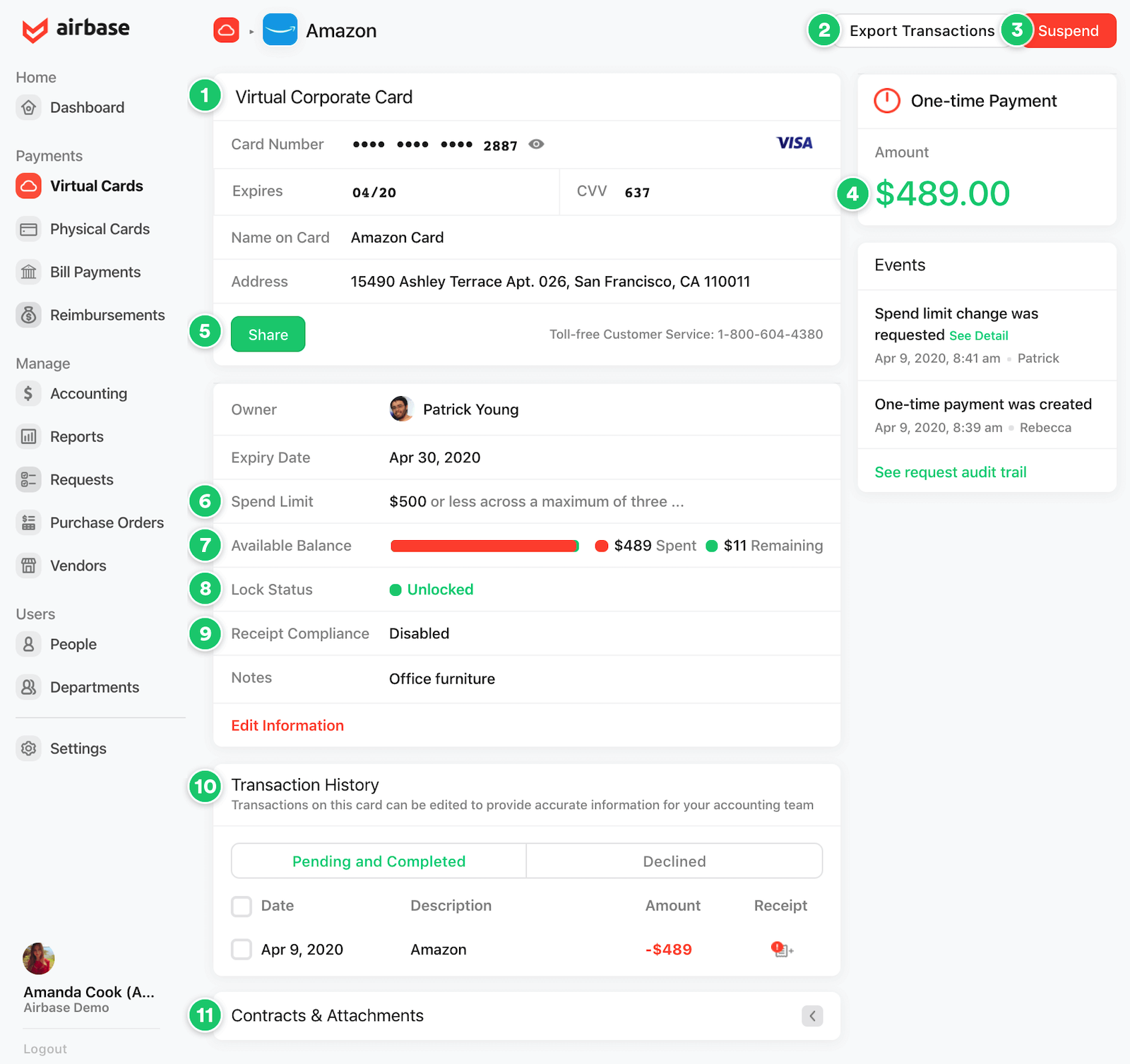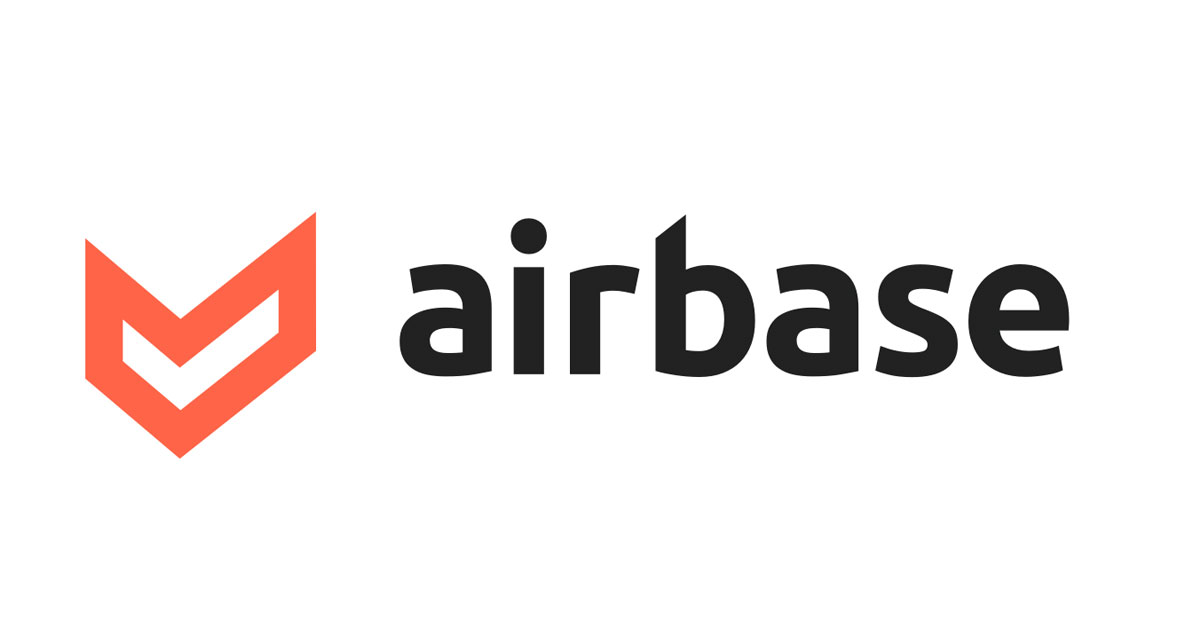In today’s fast-paced business environment, as companies scale, the complexity of managing expenses grows exponentially. Traditional methods of manually sifting through receipts, handling vendor payments, or managing reconciliation become cumbersome and time-consuming. Enter Airbase, the only procure-to-pay solution that combines enterprise-grade power with a delightful user experience, radically simplifying purchasing and ensuring compliance and smarter spending.
Airbase, the top-ranked modern spend management platform for mid-market businesses, offers a comprehensive solution that combines Guided Procurement, AP Automation, Expense Management, and Corporate Cards. This ensures businesses can control spending, close the books faster, and better manage financial risk.
One of the standout features of Airbase is its seamless integration with technology infrastructure. Heroku’s user-friendly platform empowers Airbase engineers to rapidly innovate, delivering new features and updates to customers at an unmatched pace.

Choosing Heroku on day one
The Airbase platform started out on Heroku from day one. The startup’s founder, an engineer turned CEO, chose to build on Heroku due to his experience with Heroku at a prior company. He was familiar with the challenges of building and managing infrastructure, and he wanted a very low effort, zero DevOps solution. At the time, the Airbase team was comprised of only the founder and two engineers, and hiring more engineers, particularly those not focused on building product, was not an option. Their plan was (and still is) to build and grow the business on Heroku to IPO and beyond.
DevOps is not part of our core services. It’s just not something we want to do or spend time on, so we keep things on Heroku.”
Siddharth Mitra, Senior Staff Engineer, Airbase
Today, the Airbase engineering team includes 100 engineers, representing a third of the company, and most access Heroku as part of the team’s continuous delivery processes. Going forward, Airbase intend to build any new services, tools, and functionality on Heroku.
Building a robust and secure infrastructure
Airbase is primarily a Python-based monolithic application connected to a number of services. All production apps, APIs, backend and frontend services, and internal tools run on Heroku. In addition, Airbase runs multiple environments on Heroku, including sandbox environments for enterprise customers. In terms of data, all Airbase data is stored in Heroku Postgres, supported by Heroku Data for Redis for caching.
A number of Heroku platform features have been a boon to the Airbase team. One favorite is Heroku Review Apps, which allows engineers to share a fully functional test app with others.
Review Apps is Heroku’s killer feature, and we all use it. If Airbase was running on different infrastructure, we’d have to build all that ourselves, but Heroku provides it out of the box.”
Siddharth Mitra, Senior Staff Engineer, Airbase
Deployment is another favorite aspect of the Heroku developer experience. The team deploys numerous times per day, and Heroku makes it intuitive and seamless to deploy updates in one click via Heroku’s GitHub integration. Rolling deploys (a feature of Private Spaces) allows the team to effectively refresh dynos during deployment with zero downtime.
Heroku’s built-in tooling and optimized developer experience enables the team to stay productive and focused on their product, without having to figure out workarounds or build their own solution to meet their needs.
Moving to Heroku Enterprise
In the startup’s second year, the team decided to move to a Heroku Enterprise plan, which gave the growing business greater flexibility in terms of controlling costs, as well as unlocking new platform features, such as single sign-on support and Heroku Private Spaces, which offered enhanced privacy and performance. The team moved all their apps, data, and even their staging environment into a private space, and increased their dyno capacity to private- and performance-level dynos.
Now, the Airbase platform benefits from a dedicated runtime environment that can better support high traffic periods and low-latency payment transactions. In addition, communication between services within a private network offers greater protection for services and data.

Maintaining security & compliance
Because customers’ sensitive financial information flows through the Airbase platform, data security is a top concern for the team. Fortunately, Heroku’s numerous compliance certifications, including SOC 1 and 2, and regular audit processes simplify regulatory compliance and offer the company greater peace of mind.
All of the infrastructure security is handled by Heroku, leaving the team free to focus on application-level security. In addition, Heroku tools enable the team to control who gets access to which apps, data, and reporting features, so the team can practice the principle of least privilege and only grant access to areas required for a person’s job. Therefore, when auditors come to examine the Airbase stack, it’s easy to prove the company’s compliance.
Just by being on Heroku, we sidestep all the compliance headaches. The infrastructure, routers, and network layer are all managed services that we don’t have to worry about.”
Siddharth Mitra, Senior Staff Engineer, Airbase
Adding third-party services to the Airbase stack
At one point, the Airbase team needed more flexibility with their stack. For example, they needed a more robust solution for storing customer files, and they wanted to go directly to AWS S3. They found it was easy to connect AWS to their application on Heroku and that the two solutions integrated well. The team then broke off other bits to move to other services, such as Google Cloud and Firebase for mobile push notifications, FileStack for file conversion, and SendGrid for email.
But most of the time, the team first looks to Heroku Add-ons in the Elements Marketplace to find the functionality they need. Heroku Add-ons provide an easy way to plug fully managed third-party services into a Heroku application with just a few clicks, so the team can try different solutions to see what works best. Billing for add-ons is combined with the main Heroku invoice, making it easy and convenient to pay, view, and manage costs.
Scaling up to meet monthly demand
Airbase’s clients typically reconcile their accounts at the end of every month. They’ll require employees to submit expense reports and receipts prior to this, and the accounting team is busy working to close the books, all of which produces heavier demand on the Airbase platform. With Heroku, the team can easily prepare for this cadence by running asynchronous jobs at an optimum time. Using a slider UI, they can scale dyno capacity up during the last week of the month, then down again after the month’s end. The team monitors and scales dynos manually, a process which they find easy and seamless.
Making a difference to the business
One of the biggest impacts of Heroku on the business is it’s reliability. Heroku resources are always available, and the company has never experienced downtime due to its infrastructure. This helps build trust with customers and keeps the conversation on feature development rather than system fixes.
And those new features have been launching at lightning speed. In 2022, Airbase shipped over 120 different features, something that the team could only do on a platform that supported their exceptional productivity and teamwork.
Our pace of innovation is phenomenal. And that’s because we are focused on our customer and innovating the product for them.
Michael Freeman, VP of Marketing, Airbase
Inside Airbase on Heroku
Airbase is primarily a monolithic application connected to various internal and external services. The application is written in Python, and some services are written in Java and Golang. Airbase uses Heroku Add-ons, including Heroku Postgres, Heroku Data for Redis, and Bonsai Elasticsearch, as well as direct third-party integrations, such as FileStack and SendGrid. The application stores customer files on AWS S3.




